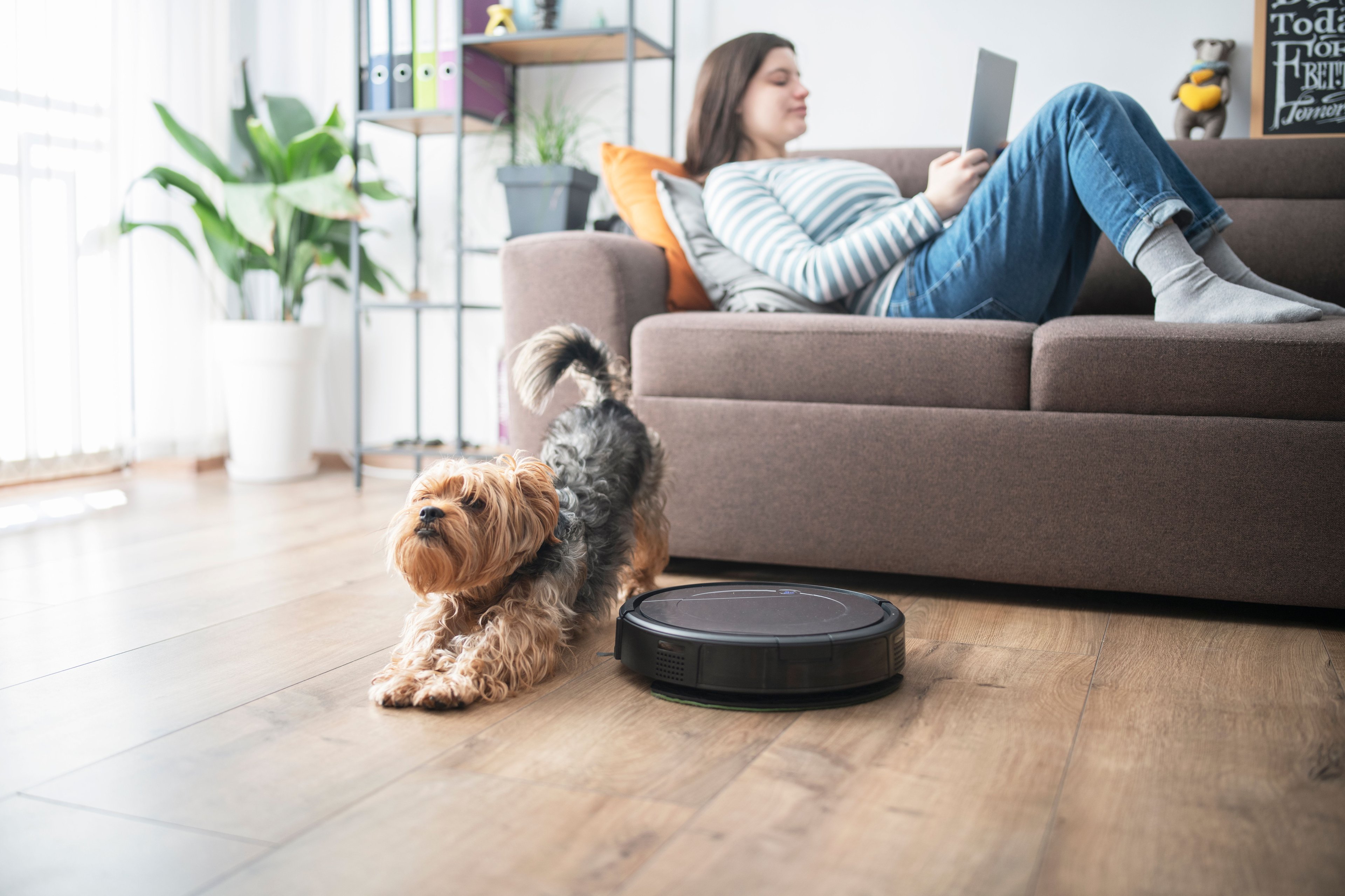Every day, Wall Street analysts upgrade some stocks, downgrade others, and "initiate coverage" on a few more. But do these analysts even know what they're talking about? Today, we're taking one high-profile Wall Street pick and putting it under the microscope...
Investors in popular growth stock iRobot (IRBT +0.00%) have had a miserable year so far.
Shares of the Roomba manufacturer have shed 26% of their value since the beginning of this year, but the damage is actually even worse than that. Over the past 52 weeks, the stock is off 47%, and measured from the high-water mark reached prior to April's sales miss, shares are down a staggering 52% -- more than half the stock's value erased in just four short months.
So is this a buying opportunity -- or a warning sign?

Image source: Getty Images.
Upgrading iRobot
Today, in a note covered on TheFly.com, equity research house Sidoti & Co. makes the case for the former.
Twenty-six percent below its target price of $83 and trading close to a 52-week low, Sidoti argues that iRobot stock's valuation looks "compelling," and says investors are worrying too much about the effect Trump's trade war against China will have on the company. In the long term, says the analyst, iRobot's heavy investments in research and development, as well as in marketing spending, will win the day and help it to maintain its position as the category leader in robotic vacuums.
Trouble in robot paradise
Is Sidoti right about that?
Last month, iRobot missed sales estimates for the second quarter in a row, and blamed trade tariffs on its Chinese-manufactured goods for the result. While sales did grow -- up 15% year over year -- they didn't quite reach analyst consensus estimates. Worse, profits per diluted share declined by a third.
Adding to investors' misery, iRobot lowered its guidance for the rest of this year, again citing tariffs for the shortfall. Management warned that sales are still decelerating, with growth expected to fall to 14% or less, while profits per diluted share will range from $2.40 to $3.15 -- and thus probably be worse than the $3.07 per share that iRobot earned last year.
And the situation may be even worse than it seems. Twenty-five percent levies against Chinese imports raise the cost of iRobot's vacuums, which both hurts unit sales and -- perversely -- probably helps to keep sales growing anyway, because the dollar value of each robo-vac sold soars. Problem is, the added dollar value goes to the U.S. Treasury, not to iRobot, and as a result, these modestly growing sales aren't doing any good at all for the company's profits.
From worse to worst
And even that isn't the worst of the news. According to Sidoti, iRobot is a buy in part because it's aiming to shift production of at least some of its robotic vacuum cleaners to Malaysia, sidestepping the effect of at least some of the tariffs. (Personally, I don't buy that argument. Malaysia lacks the extensive production infrastructure of China, and I doubt it will come anywhere near to being able to replace Chinese production.) But mainly, what attracts Sidoti to iRobot stock right now is the aforementioned "compelling" valuation -- and here, too, I have problems with the analyst's argument.
From one perspective, yes, iRobot's valuation looks attractive today. With $1.7 billion in market capitalization and $87 million in trailing GAAP earnings, the stock sells for 19.8 times trailing earnings -- an apparently fair price given that analysts polled by S&P Global Market Intelligence see the company growing earnings at 20% annually over the next five years.
Problem is, if you shift your view to iRobot's cash flow statement, you'll find that over the past 12 months, the company actually generated only $34 million in real cash profits. That's less than half iRobot's $87 million in claimed "net income," and it means that when valued on free cash flow instead of net income, the stock is more than twice as expensive as it first appears.
And iRobot's free cash flow has been deteriorating for the past two and a half years.
Granted, some of this decline in free cash flow coincides with the Chinese tariffs, and can be pinned on them -- but the deterioration in free cash flow also predates the tariffs, meaning that you cannot blame them for all of iRobot's troubles.
So what is to blame? Rather than focus solely on tariffs, and assume that once they go away (after the presidential election next year, perhaps?), iRobot's problems will vanish with them, I think investors need to focus instead on rising competition from rivals offering high-quality competing products at lower prices.
Last year, Consumer Reports published a top-10 list of robotic vacuums, and while various Roombas claimed four of the spots, not a single Roomba made it into the top three. And last week, JPMorgan highlighted yet another competitor (this one from Shark, and at a price lower than Roomba's) that will probably hit the market in time for iRobot's crucial Christmas shopping season.
Far from being a compelling bargain, I fear iRobot's problems are only getting worse.






